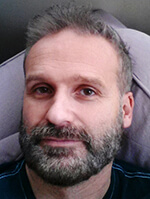
NSPCC: Treating harmful sexual behaviour by children and young people
Pat Branigan describes the NSPCC's work in tackling harmful sexual behaviour by young people.
Sexual abuse perpetrated by children and young people is not a rare phenomenon with at least one third of child sex offences in the UK being committed by other children and young people. The true scale of the problem likely to be much greater. This is borne out by a UK random population sample taken in 2011 where it was found that two thirds of individuals who had experienced contact sexual abuse as children had been abused by someone under the age of 18.
The NSPCC treatment programme
To tackle harmful sexual behaviour by young people the NSPCC have, for the past eight years, run a treatment programme out of a selection of their UK service centres. ‘Turn the Page’ is designed for boys and girls aged five to 18 displaying harmful sexual behaviour that is beyond what would be classified as inappropriate or problematic. Referrals are taken predominantly from children’s services and youth offending teams with the focus being on changing behaviours by identifying and managing destructive thoughts, emotions and actions. The treatment is underpinned by a cognitive behavioural approach and draws on attachment theory, mentalisation theory, psychodynamic and systems theories. Across the 30 weekly sessions NSPCC practitioners ultimately aim to help the young people increase their socially acceptable behaviour and refrain from sexually harmful behaviour. They also try to improve psychological functioning, optimism about the future and their sense of well-being.
Assessment and treatment
Children and young people with convictions for sexual offences or showing historical and/or persistent harmful sexual behaviours are referred to the National Clinical Assessment and Treatment Service (NCATS). This is a national service run in partnership between the NSPCC and the Oxleas NHS Foundation Trust, with the team consisting of four social workers, a consultant clinical psychologist, a consultant child and adolescent psychiatrist and a systematic family therapist. Together they meet with the young person, their parents or carers and the professional network and produce a multi-disciplinary assessment report which aims to make sense of their behaviour, provide an analysis of risks posed by the young person and to make recommendations about case management, placement and treatment options. This can include the young person working directly with NCATS, usually within a wider package of care and treatment.
Developing new models
In line with emerging research and recommendations from a five year ‘Turn the Page’ evaluation the NSPCC is now in the process of updating, integrating and improving its harmful sexual behaviour treatment programme to better meet the needs of all service users. Currently under consideration is a new model that will see three different interventions to deal with harmful sexual behaviour, with the first designed for boys and girls aged seven to 12, the second being for vulnerable groups including those with mild to moderate learning disabilities, and the third specifically for 12 to 18 year old boys. These will sit alongside the NCATS service that will continue to be delivered from Camden assessing the risk and providing interventions for more extreme cases.

Pat Branigan
About the author
Pat Branigan is a development manager at the NSPCC. He is responsible for leading on the development of key elements of the NSPCC’s response to child sexual abuse with a focus on prevention of harmful sexual behaviour displayed by children and young people.
Share
Like most websites, we use cookies. If this is okay with you, please close this message or read more about your options.

